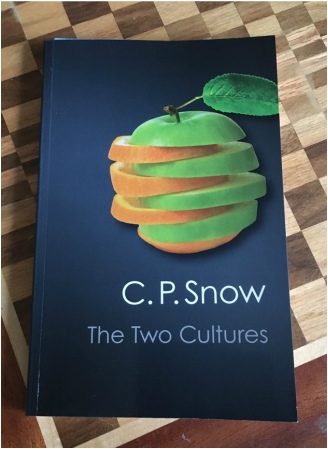 A debate took place in my class yesterday, about whether spirituality or science was a more valid guiding principle – you know, just another day in a grade seven class. It went mostly as you would expect until one student, arguing for spirituality, insisted that those who only follow science are close-minded – that they can’t allow for other possibilities. This view fascinated me. It suggests that the student sees science as hard facts, lines drawn in the sand, rather than as a way of questioning and exploring. It should be exactly the opposite – the more questions that science asks, the more open-minded scientists have to be, as they become aware of how little they know. Perhaps this is less about how science actually operates, and more about how it is taught; it leads many people to see themselves as outsiders to science. Which is wrong, of course. No one is “outside of science,” or its consequences and applications. Our lives are lit, driven, organized, and entertained by applied sciences. None of us is immune from the laws of physics, though they may as well be magic for all most of us understand of them. Unlike our ignorance with computers, our dismissal of science is not new. Over fifty years ago, C. P. Snow wrote “The Two Cultures”; he argued that the gulf between scientists and “non-scientists” (in this case, literary academics) was so wide that they were unable to understand, and even tolerate, each other. “The Two Cultures” shows its age; it can be elitist in its ideas about education, and it makes frequent references to the Cold War. For all that, it remains surprisingly relevant. Snow didn’t argue that science was somehow more important, but rather that it was critical to understand both humanities and science. C. P. Snow described the divide between science and non-science in the harshest of terms – that it was “fatal” and “dangerous” for educated people to be so divided and specialised. This was fifty years ago, when the pressing human and scientific concerns of global climate change were not even on the table. A few years ago, I would have fallen into the trap of feeling that my literature degree was all that I needed to know. Two things changed: I married my husband, who is an engineer; and I began to teach grade seven, which required me to teach everything. One of the results of this was my writing of The Steel Lady, which combined Victorian culture with science and technology. Another was that my classroom benefitted not only from my knowledge, but from my husband’s, as I sought his support in teaching physics and electronics. Not everyone is so lucky. What my students made clear to me yesterday is the same thing Snow that made clear all those years ago – we cannot afford to do this anymore. We cannot afford to divide our education, and feel superior in our beliefs and in our logic. There are enough divides between us – our education shouldn’t be one of them. We need science, or we can’t hope to understand our universe; we need literature and the humanities, or we can’t hope to understand each other. As C. P. Snow put it, “Isn’t it time we began?”
0 Comments
Leave a Reply. |
Author
Jane Perrella. Teacher, writer. Expert knitter. Enthusiast of medieval swordplay, tea, Shakespeare, and Batman. Archives
June 2019
Categories |
 RSS Feed
RSS Feed
